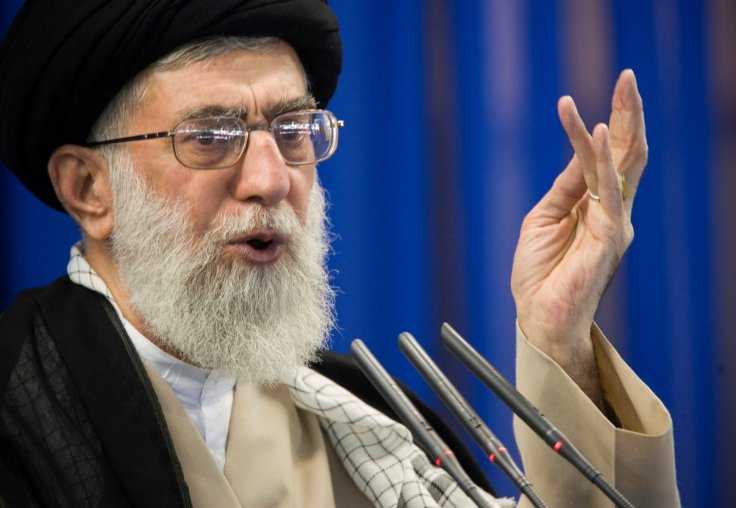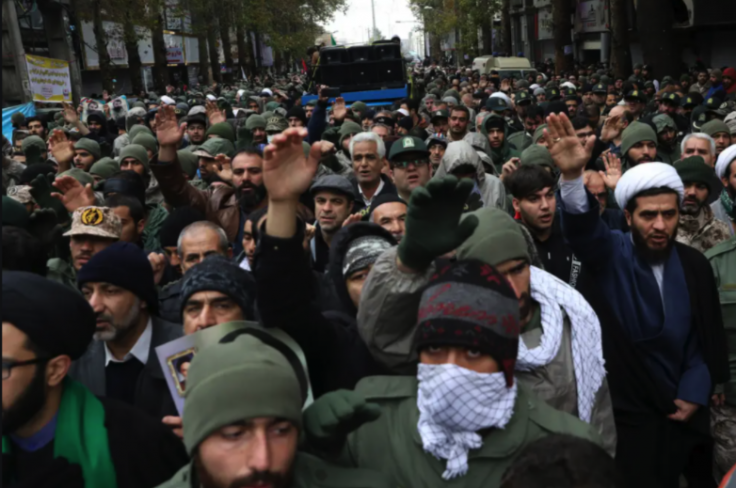Iran has vehemently denied reports of the death of the Supreme Leader Ayatollah Ali Khamenei. Officials have even trashed reports that said the 81-year-old leader was fighting fresh health challenges.
"By the grace of God and with the good prayers of devotees, the gentleman (Ayatollah Khamenei) is in good health and is busy vigorously carrying out his plans according to his routine," Mehdi Fazaeli, an official who had worked closely with the supreme leader, said on Twitter.
"May it blind the enemies' eyes that with the grace of God and the prayers of devotees, (Khamenei) is in good health and is carrying out his plans following the usual schedule," Fazaeli added.
Iranian politics create unquenchable interest on social media across the region. Intense speculation follows anything Iranian - rumors, exposes, arrests, elections, executions.

The Iranian regime's brutal and swift crackdowns on protests routinely result in widespread resentment and deep-entrenched anti-establishment sentiments. In the absence of a system to express political dissent, the critics go underground or slip out of the country fearing repression.
Recently, Iran witnessed widespread protests when the government reduced gasoline subsidies in November last year. Before that there were large scale protests following the accidental shooting down of a Ukrainian passenger plane, killing scores of Iranians.
Son Mojtaba Khamenei Taking Over?
Earlier on Monday, multiple media outlets reported that the supreme leader was extremely unwell and hospitalized. Some reports said a power transfer was underway in Iran, and Ali Khamenie's son Mojtaba Khamenei was taking over the reins.
This led to frenzied discussions on social media, especially on microblogging site Twitter, regarding Khamenei's illness. The Jewish Press then reported, citing sources in Iran, that the supreme leader had actually died.
The Israel-affiliated news outlet reported that the formal announcement of the supreme leader's death will be made only after the power transfer is complete.
Death Reports in 2007, 2009 and 2014
The fresh round of Ali Khamenei death rumors sprang from a health update on Twitter, posted by London-based Iranian journalist Mohamad Ahwaze. "The duties and powers of the office of Supreme Leader Ayatollah Ali Khamenei have been transferred to his son Mojtaba Khamenei, who oversees several security and intelligence departments in Iran," he tweeted.
The health of Ali Khamenei has remained a topic of intense speculation in Iran and the wider region. He was the victim of a death hoax earlier too. In 2007 rumors of his illness and death had circulated in Iran and the region. However, Khamenei later trashed the reports, saying enemies of the country were behind it.

In October 2009, Michael Ledeen, an American neoconservative foreign policy analyst, said with authority that Ali Khamenei died after a sudden bout of illness. A similar rumor surfaced again in 2014 following a prostate surgery that he underwent.
According to the Guardian, Ledeen quoted an "excellent" but anonymous source to report Iranian top cleric's death. However, Ledeen is known to be a pronounced enemy of Iran, someone who openly advocated the invasion of Iran as a means of establishing peace in the Middle East.
Great Appetite for Rumors
Obviously, there is great appetite for rumors surrounding the health and 'death' of Iran's top leader. Iran's political opposition is largely underground, or scattered overseas. Activists, observers and Iran influencers living in enemy capitals claim to have a steady link to the grapevine in Iran.
This is amplified by the media restriction in place in the country. Foreign reporting is close to nil in Iran, making it extremely hazardous to verify sensitive information. This in due measure, augments the interest in Iran developments, offering eventually a hot pot of unverified claims, lurid revelations and half-truths -- all of which has tremendous currency on social media sites.









